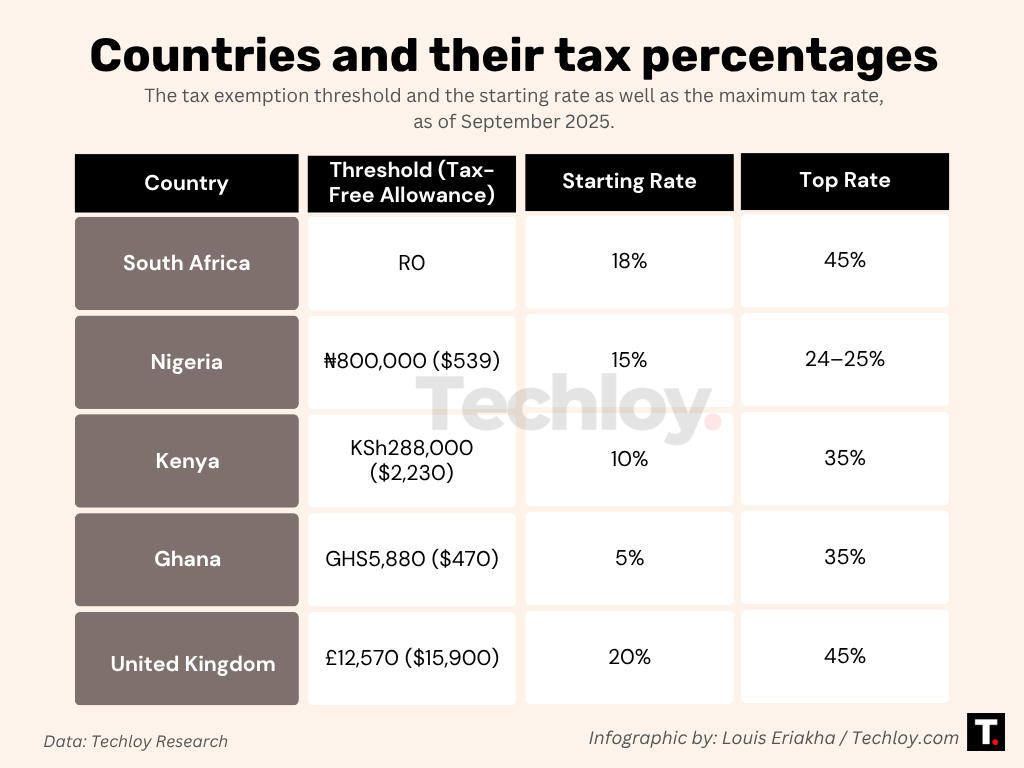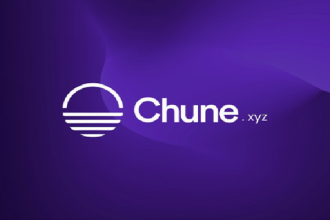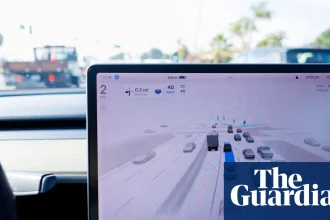If you live in Nigeria and earn an income, whether that be a salary, a side gig, or even remote jobs, you’ll want to keep an eye on the new tax rules. The Nigeria Tax Administration Act (NTAA) 2025, signed in June and kicking in by January 2026, is one of the country’s biggest tax shakeups in years.
Translation: those payslip deductions might soon look a little different.
For years, Nigeria’s main tax law, the Personal Income Tax Act (PITA), has struggled to keep up with modern realities like remote work, digital platforms, and income from abroad. These new laws aim to fix that by combining and updating older rules, making the system broader, clearer, and harder to avoid.
Nigeria tightens crypto rules with fines, taxes, and license risks
On one hand, more regulation for crypto companies. On the other hand, this will probably lead to higher fees for customers.
The idea is straightforward: if you earn income in Nigeria and make above a certain threshold, you’re expected to pay tax, whether you’re a civil servant, a salaried employee, a business owner, or even a remote worker freelancing for a company abroad. Countries like the U.S. and the U.K. already tax residents on their global earnings, and Nigeria is now aligning with that approach.
Under the NTAA/NTA changes, the definitions of taxable income and tax residency are clearer than before. If Nigeria is your home base, or you spend at least 183 days in the country during the year, your worldwide income is subject to personal income tax. Previously, many cross-border earners slipped through the cracks, but the law now explicitly includes them.
So how much will you pay?
In simple terms, the new system introduces progressive tax bands with a “tax-free” entry point. This means, the first ₦800,000 of your annual income is fully exempt from tax (0%). Then, income between ₦800,001 and ₦3,000,000 is taxed at 15%, with higher brackets extending up to 25% for very high incomes.
Here’s an example: imagine someone earning ₦1,000,000 per year. The first ₦800,000 is tax-free, leaving ₦200,000 to be taxed at 15%. That means they’d pay ₦30,000 in annual tax—an effective rate of just 3% on total income. This applies equally to traditional employees, freelancers, or anyone earning above the threshold.
When compared with other countries, Nigeria’s tax burden still looks relatively light. In South Africa, income is taxed from the first rand at 18%, with bands rising progressively to a 45% top rate. Kenya begins taxing above roughly KSh 24,000 per month, with a top rate of 35%. Ghana exempts the first GHS 5,880 annually before progressively climbing to the same 35% top band.
Meanwhile, in the U.K. the first £12,570 is tax-free before a 20% base rate applies, and in the U.S., federal tax exempts about $14,600 for single filers in 2024 before rates step up from 10% to 22%.

With the country’s tax-to-GDP ratio roughly 10%, one of the lowest in Africa, expanding the tax net is seen as a way to stabilize public finances and reduce reliance on borrowing. There has also been a notable gap in enforcement, where developed economies maintain far stricter compliance systems.
Now, Nigeria is raising its tax threshold and demanding compliance. It will exempt the first ₦800,000 and has a top rate of 24–25%, a ceiling still lower than many of its peers.
This, however, comes at a time when traditional sources of income are under strain. Nigeria is facing deep economic challenges, including persistent inflation, a weak naira, and rising unemployment. According to recent government data, around 38–40% of Nigerians live below the poverty line.
These changes in Nigeria carry broader implications. For a country where millions already live on the financial edge, stricter tax enforcement risks public backlash if not matched with visible improvements in services. But the government argues that better tax compliance is key to helping the government increase revenue and to fund the infrastructure, power, and education systems that drive growth.
Now Nigeria is taking the digital economy seriously: remote work, cross-border contracts, and digital services can no longer operate under ambiguity.
For both traditional employees and the growing pool of freelancers, the tax net has widened, and the rules are now spelled out.
Nigeria is scrapping the 5% telecom tariff on calls and data
It’s a signal that the government is trying to make digital access more affordable.



















